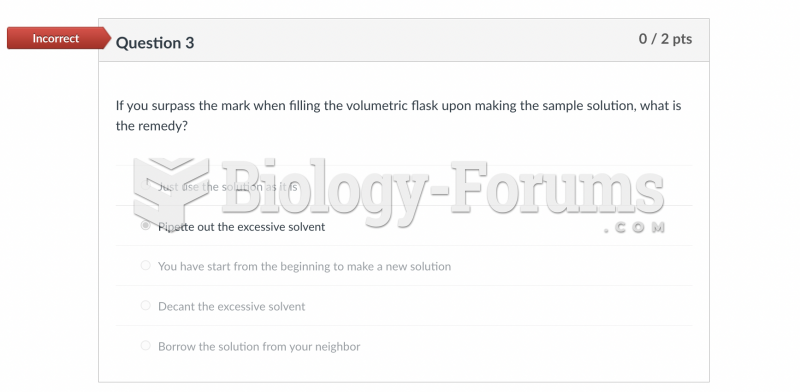|
|
|
Chronic necrotizing aspergillosis has a slowly progressive process that, unlike invasive aspergillosis, does not spread to other organ systems or the blood vessels. It most often affects middle-aged and elderly individuals, spreading to surrounding tissue in the lungs. The disease often does not respond to conventionally successful treatments, and requires individualized therapies in order to keep it from becoming life-threatening.
Glaucoma is a leading cause of blindness. As of yet, there is no cure. Everyone is at risk, and there may be no warning signs. It is six to eight times more common in African Americans than in whites. The best and most effective way to detect glaucoma is to receive a dilated eye examination.
Carbamazepine can interfere with the results of home pregnancy tests. If you are taking carbamazepine, do not try to test for pregnancy at home.
Since 1988, the CDC has reported a 99% reduction in bacterial meningitis caused by Haemophilus influenzae, due to the introduction of the vaccine against it.
In 1864, the first barbiturate (barbituric acid) was synthesized.
 Inflammation. Inflammation is characterized by the presence of swelling, redness, heat, and pain. Sw
Inflammation. Inflammation is characterized by the presence of swelling, redness, heat, and pain. Sw
 Headsets are ergonomically correct and allow the medical assistant or receptionist to use both hands
Headsets are ergonomically correct and allow the medical assistant or receptionist to use both hands





